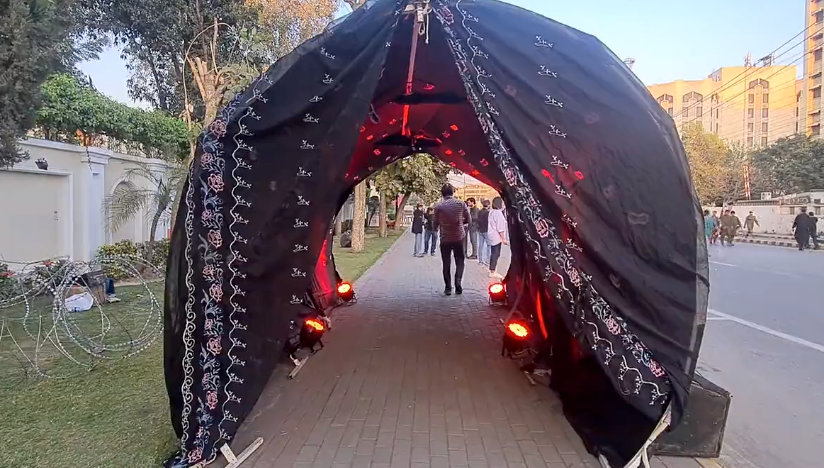Pakistan’s ‘Aurat March’ sets up art installation playing catcalls to highlight street sexual harassment
‘I literally had flashbacks’

Your support helps us to tell the story
From reproductive rights to climate change to Big Tech, The Independent is on the ground when the story is developing. Whether it's investigating the financials of Elon Musk's pro-Trump PAC or producing our latest documentary, 'The A Word', which shines a light on the American women fighting for reproductive rights, we know how important it is to parse out the facts from the messaging.
At such a critical moment in US history, we need reporters on the ground. Your donation allows us to keep sending journalists to speak to both sides of the story.
The Independent is trusted by Americans across the entire political spectrum. And unlike many other quality news outlets, we choose not to lock Americans out of our reporting and analysis with paywalls. We believe quality journalism should be available to everyone, paid for by those who can afford it.
Your support makes all the difference.Organisers of Pakistan’s “Aurat March” (women’s march) set up an art installation in the shape of a tunnel on a street in Lahore playing recorded catcalls by men to highlight street sexual harassment.
Aurat March is an annual demonstration in cities such as Islamabad, Karachi, Lahore, Peshawar, and Quetta to observe International Women’s Day.
This year, the group installed Chalien Auraton Ki Chaal (walk like a woman) for people to pass through and experience the discomfort they feel while recordings of men harassing women on the streets are played on speakers.
“The tunnel piece is an exercise in empathy, in conveying our gendered experiences of walking down the streets, in market places, through office doors,” said Aurat March.
“Ask any gender minority what they feel when they are in public spaces: each one of us will have many stories of harassment, of discomfort, of instances where the streets didn’t feel like ours.
“The art piece plays soundbites of our day-to-day public interactions.
“Aurat March is ultimately about reclaiming public spaces, of never settling for chaar-dewaris, but rather stretching ourselves more fully within and outside our homes. That demands introspection from men of the way they occupy public spaces. We hope this piece helps in that.”
Many people reacted to the installation on Twitter.
Journalist Saba Eitizaz wrote: “I literally had flashbacks.
“Have heard every one of these calls...and worse, every day of my life growing up in Pakistan. It actually started even before I reached puberty. That’s how sick the harassment is. But talk to a man, and they’ll tell you women are the safest in Pakistan.”
Another person added: “Got uncomfortable just watching the video. Sheesh. Unimaginable that this s*** happens every day, everywhere.”
One person wrote: “This is so horrifyingly accurate.”
According to Geo News, this year’s Aurat March in Pakistan turned violent on Wednesday (8 March) as marchers clashed with police.
A fight reportedly broke out outside the Press Club where the police beat attendees with batons and allegedly tried to “stop” the rally.
Rape Crisis offers support for those affected by rape and sexual abuse. You can call them on 0808 802 9999 in England and Wales, 0808 801 0302 in Scotland, and 0800 0246 991 in Northern Ireland, or visit their website: www.rapecrisis.org.uk. If you are in the US, you can call Rainn on 800-656-HOPE (4673).



Join our commenting forum
Join thought-provoking conversations, follow other Independent readers and see their replies
Comments